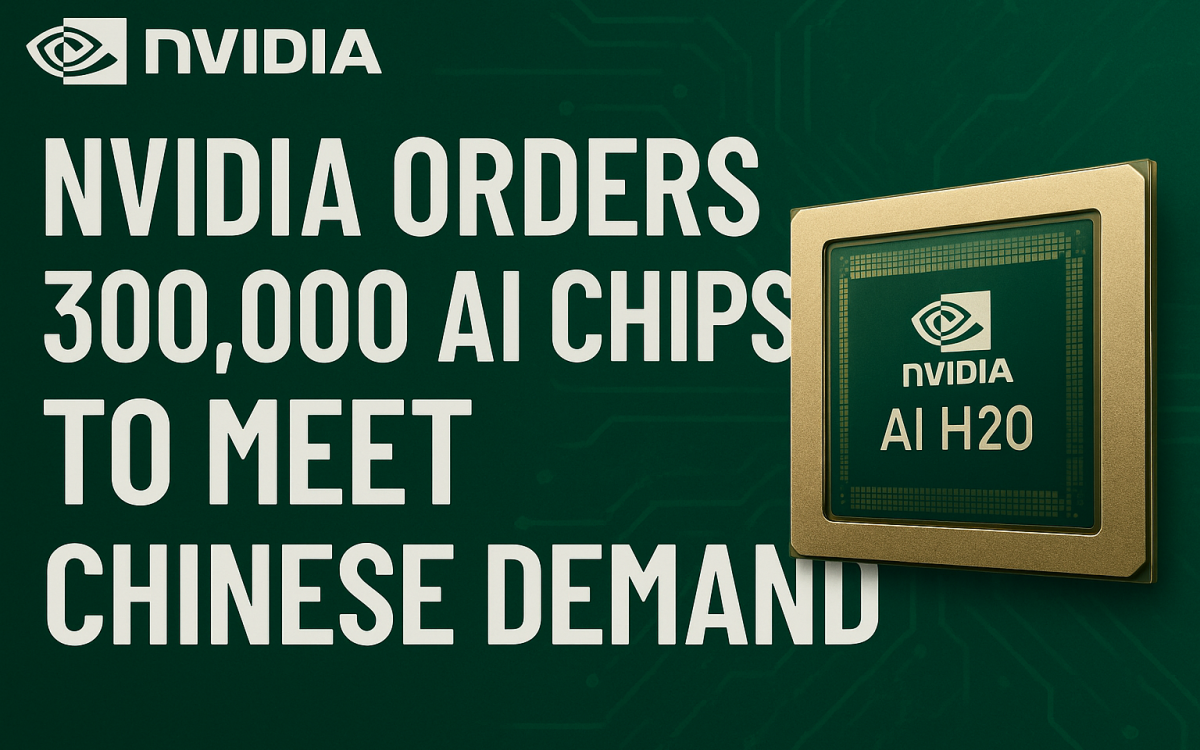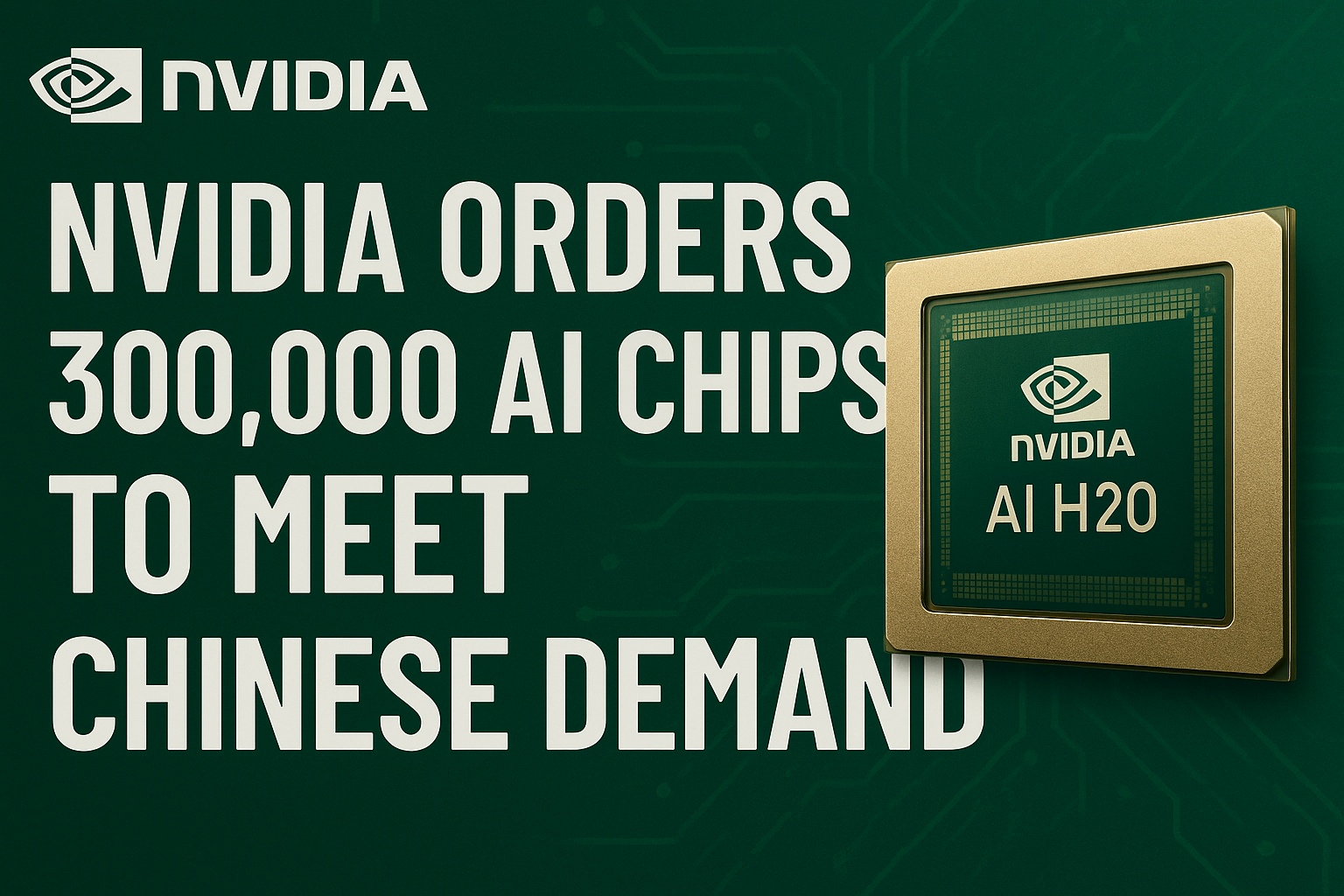Nvidia Orders 300,000 AI Chips to Meet Chinese Demand
1. The New Order: What’s Going On
Nvidia has placed an order for 300,000 H20 AI chips with Taiwan Semiconductor Manufacturing Company (TSMC) to meet surging demand from Chinese tech giants such as Tencent, ByteDance, and Alibaba. The H20 chip is a specialized export-compliant model designed to operate within U.S. trade restrictions, offering reduced performance compared to flagship GPUs like the H100 but still capable of handling high-demand AI workloads.
This new production run comes in addition to Nvidia’s existing stockpile of 600,000 to 700,000 H20 chips, reflecting a strategic shift from relying on inventory to ramping up manufacturing output.

2. Export Licenses & U.S. Policy Reversal
Earlier in the year, H20 sales to China were restricted under tightened U.S. export controls. In July, the U.S. government approved their sale, enabling Nvidia and other chipmakers to re-enter the Chinese AI market. As part of the arrangement, the U.S. will collect a percentage of revenues from these Chinese chip sales. While export licenses are expected, final approval is still pending.
3. Market Impact & Investor Sentiment
News of the order drove Nvidia’s stock to fresh record highs, marking multiple consecutive sessions of gains. Analysts point to renewed access to China’s AI sector as a major growth driver, with potential spillover benefits for the broader server supply chain. Investor confidence remains strong, with Nvidia maintaining a top position in influential investment rankings.
4. China’s Reaction & National Security Concerns
China’s regulatory authorities have raised concerns over potential security vulnerabilities in the H20 chips, questioning features such as remote control and tracking capabilities. Officials have reportedly advised certain organizations to exercise caution in deploying these chips, particularly for government-related purposes, while encouraging adoption of domestically developed AI hardware. Nvidia has denied the presence of any such embedded surveillance features.
5. Strategic Implications & Industry Context
The H20 was designed specifically to meet export compliance while preserving Nvidia’s foothold in the Chinese AI ecosystem. Despite its performance limitations, the chip supports critical AI applications and retains compatibility with Nvidia’s powerful software stack. This order underscores the importance of China as a market and the competitive necessity of maintaining a presence there, even under evolving regulatory and geopolitical pressures.
This move highlights a critical moment in the global AI chip market, as Nvidia navigates booming demand, geopolitical complexities, and increasing competition from domestic Chinese chipmakers.



